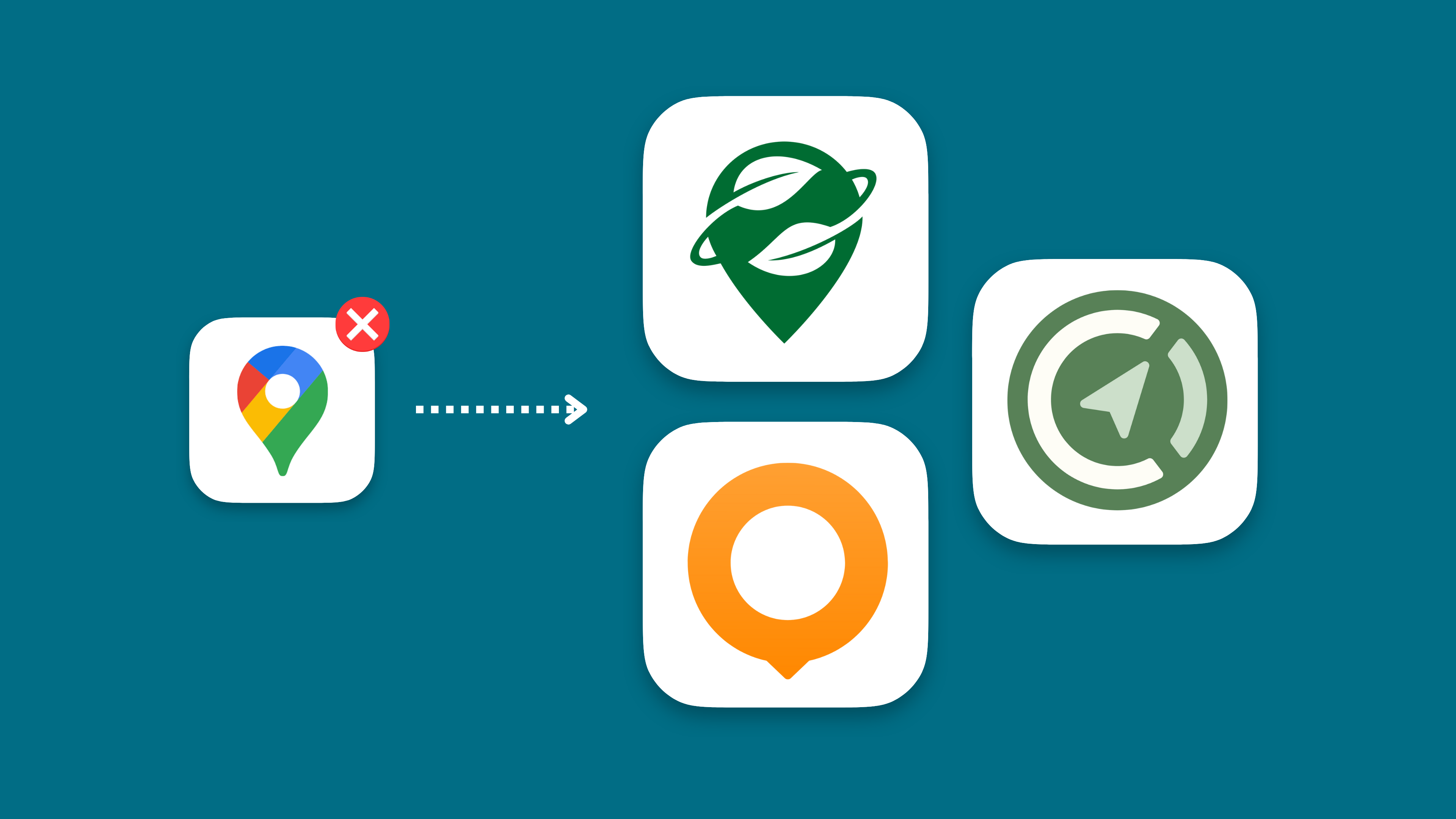Google Maps alternative:Best open source maps in 2026
With a number of community driven, open source mapping projects, picking a Google Maps app alternative that comes with without ads or tracking has never been easier.
Is Google Maps privacy bad?
First launched in 2005, Google Maps burst onto the internet eventually outgrowing the previous heavy weight MapQuest. Soon cities of the world were being visited by Street View vehicles and backpacks armed to the teeth with cameras and GPS software to make Google Maps even more accurate.
This is where the privacy concerns started to pop up.
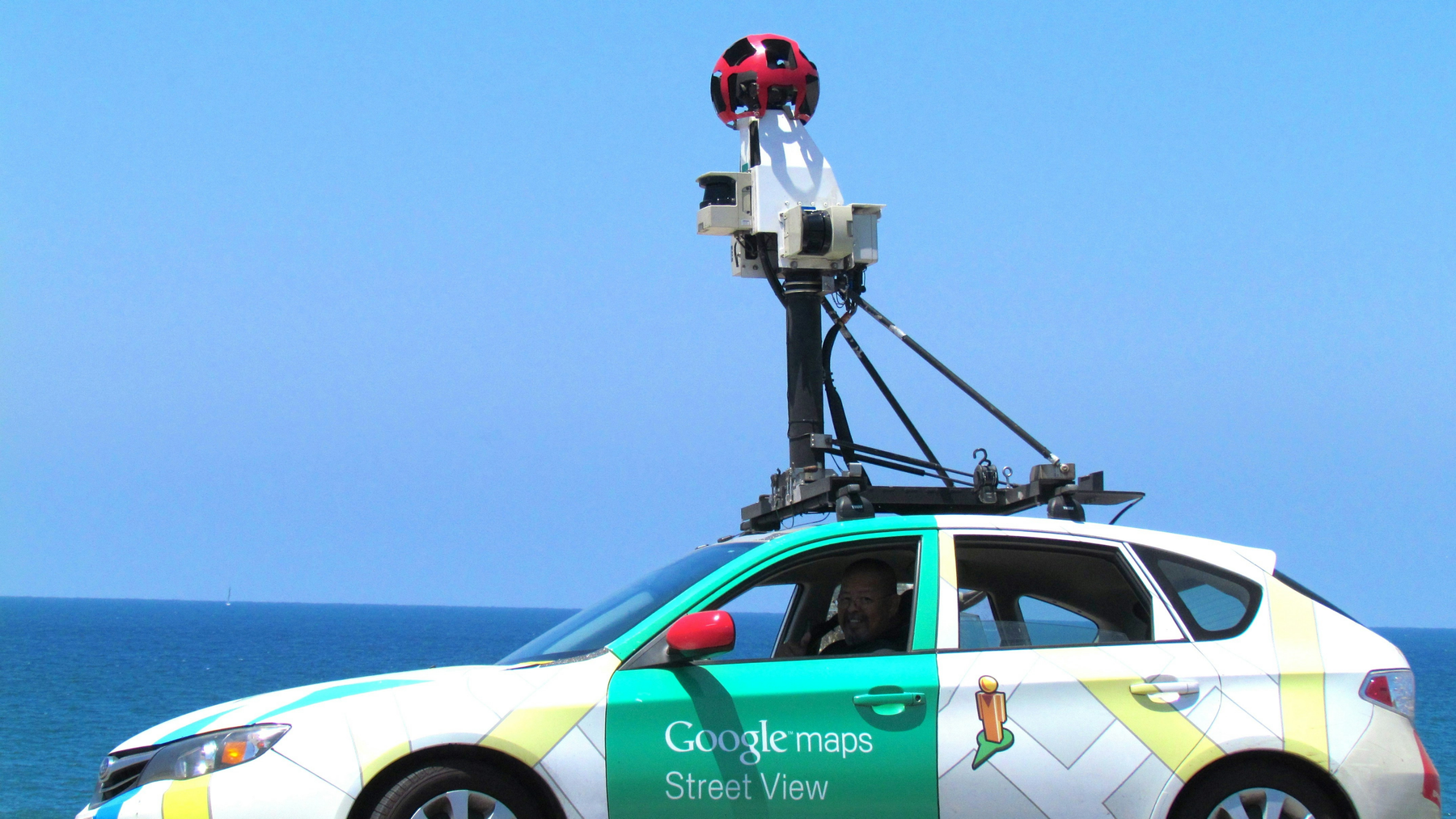

Google’s Street View team is taking pictures throughout cities and neighborhoods around the world. Image: Suzy Brooks on Unsplash.
Every move you make… Google is watching
As Street View grew, it started to include images of people in places where they might not like to be seen such as in front of abortion clinics or strip clubs. Images also began to surface of people in swim suits or in compromising activities. In response to the initial pushback, Google simply claimed that because the photos were taken on public property, e.g. streets or sidewalks, that the people in the images have no reasonable claim of privacy.
Google has since introduced measures like blurring license plates and allowing requests for images to be removed, but of course only after scrutiny.
Google’s excessive level of collection were not limited to images and video, but also included the collection of publicly “visible” WiFi SSIDs and MAC addresses. Why this information was necessary for providing millions of users around the world with accurate routes to their nearest coffee shop was never provided, but again upon receiving pushback, this time by a data protection authority in Hamburg, Germany.
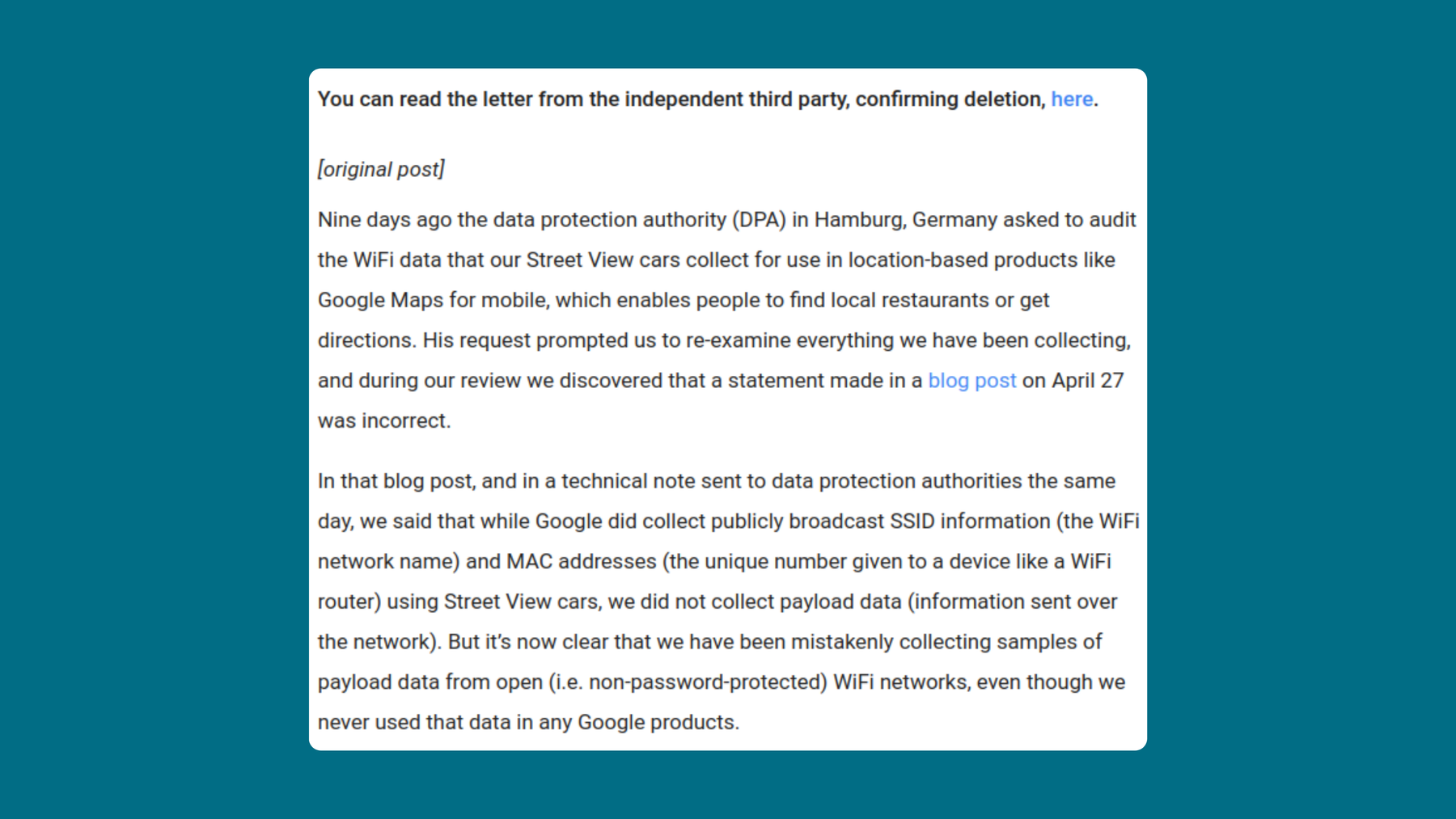

Google’s official response to WiFi data collection. Screenshot: Google Blog.
These repeated media reports of Google’s disregard for the privacy of the general public led to a push for open source, community-driven alternatives to Google Maps. The biggest contender, now used by Google’s direct competitors and open source projects alike is OpenStreetMap.
OpenStreetMap & the rise of grassroots navigation
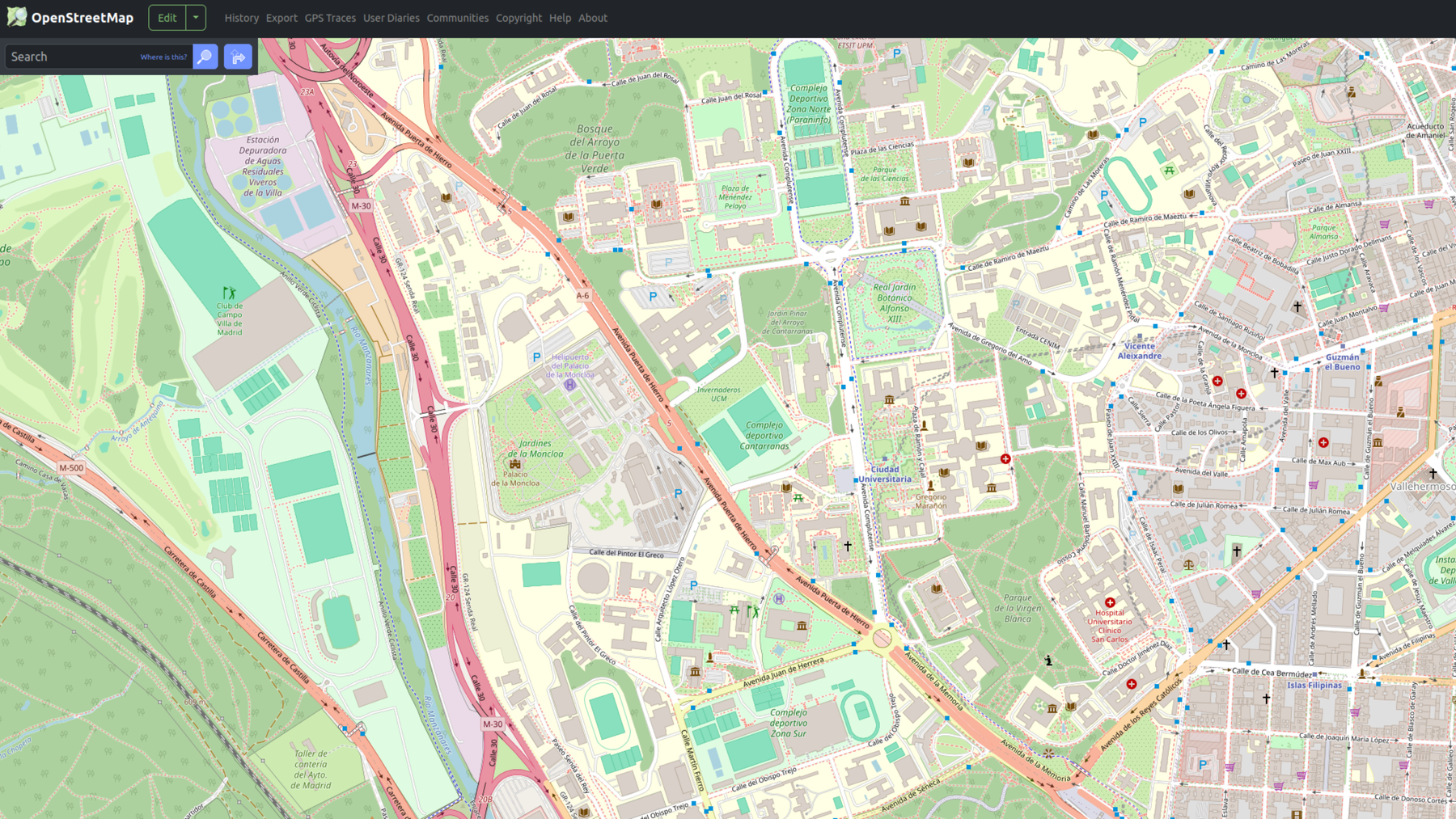

OpenStreetMap (OSM) was also created in 2004 in response to projects funded by the UK government not publicly releasing their datasets. It has since become the best alternative to Google’s app. As OSM has grown it has been adopted by major tech companies and open source projects alike. Google’s change to introduce pricing tiers for Google Maps also led a number of tech companies to make the jump to the open source project instead of funding their competitor.
Beyond building their datasets through data received from other tech companies and government surveying, OpenStreetMap is a largely community-driven project. Users and volunteers can submit their own survey data to improve and add further detail to the maps. If you are interested in getting involved, OSM is built by the work of numerous local chapters which encourage public participation. Beyond crowd sourced GIS, the OpenStreetMap Foundation is an international non-profit and is funded largely by donations to the project.
Our own, quantum-safe calendar includes the option to add locations to your events using the OSM as an alternative to Google Maps. OSM allows us to make it possible for you to add location data to your events without needing to share any data with Big Tech companies like Google or Apple. This is yet another case of open source projects building off each other to create new and practical options for privacy-minded users.
We are not the only open source project implementing OpenStreetMap data, and we can recommend a number of great app alternatives to Google Maps.
Google Maps Alternatives
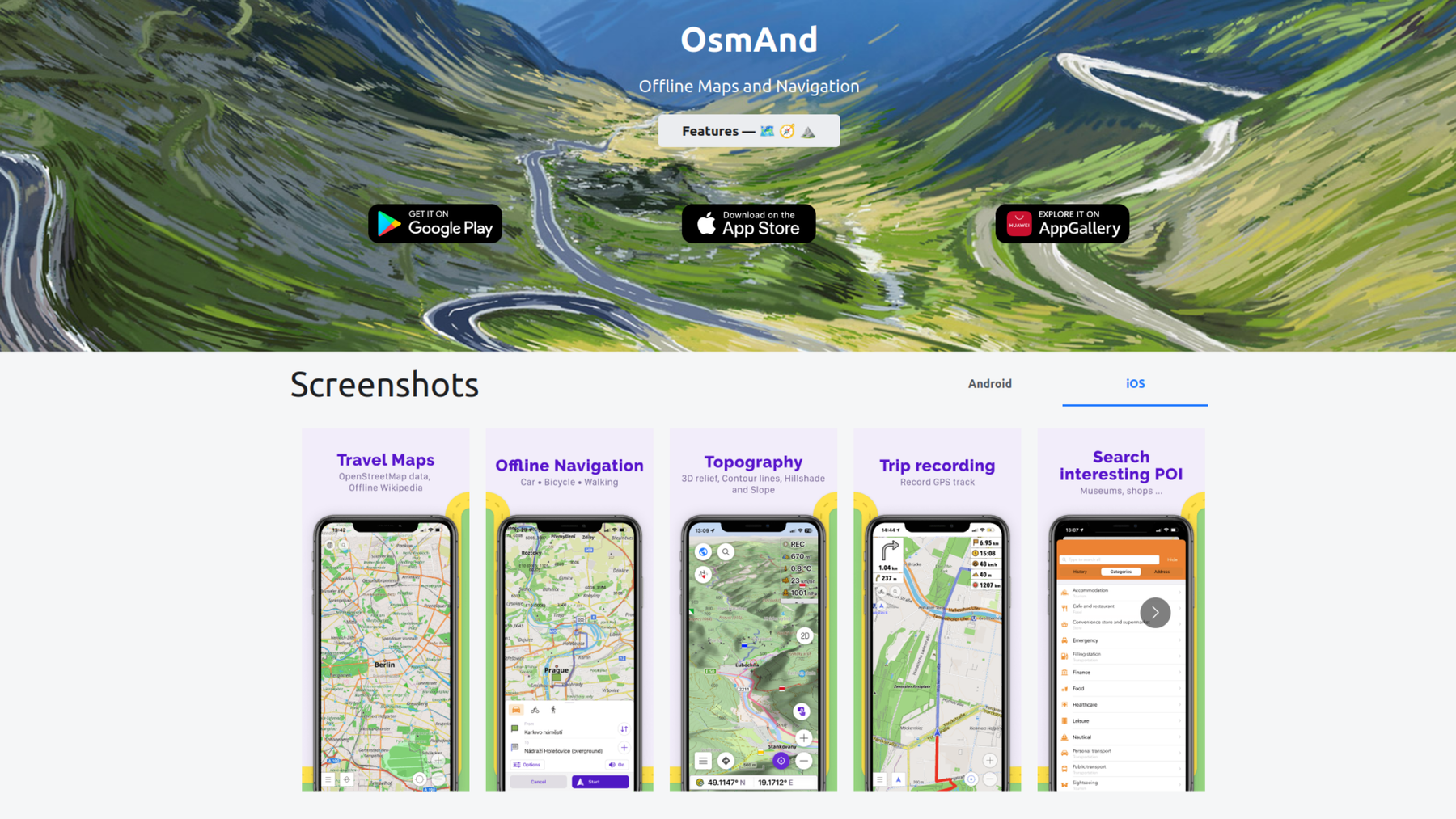

OsmAnd is a great pick for those needing a Google Maps alternative that can be used for a range of activities like cycling or driving, and offers offline usability. Screenshot: OsmAnd.
1. OsmAnd
OsmAnd is a fantastic choice when searching for an alternative to Google Maps that’s open source. It is available on both Android and iOS devices with both free and paid subscription options. Free accounts have full access to maps and navigation features, but choosing a paid subscription will allow you unlimited map downloads and increases the frequency of updates.
All subscriptions can take advantage of turn-by-turn navigation, route planning, map markers, and all the favorite features you expect from a map and navigation app in 2026. By making the jump to a paid subscription, you get some extra features like topo maps, nautical depths, and even point-of-interest data imported from Wikipedia.
If you are tight for cash, OsmAnd also holds regular giveaways where you can have the chance to win a paid subscription for free.
OsmAnd’s offline maps can be used while driving, cycling, and walking. It’s available for download on Google Play and AppGallery for Android, and the App Store for iOS.
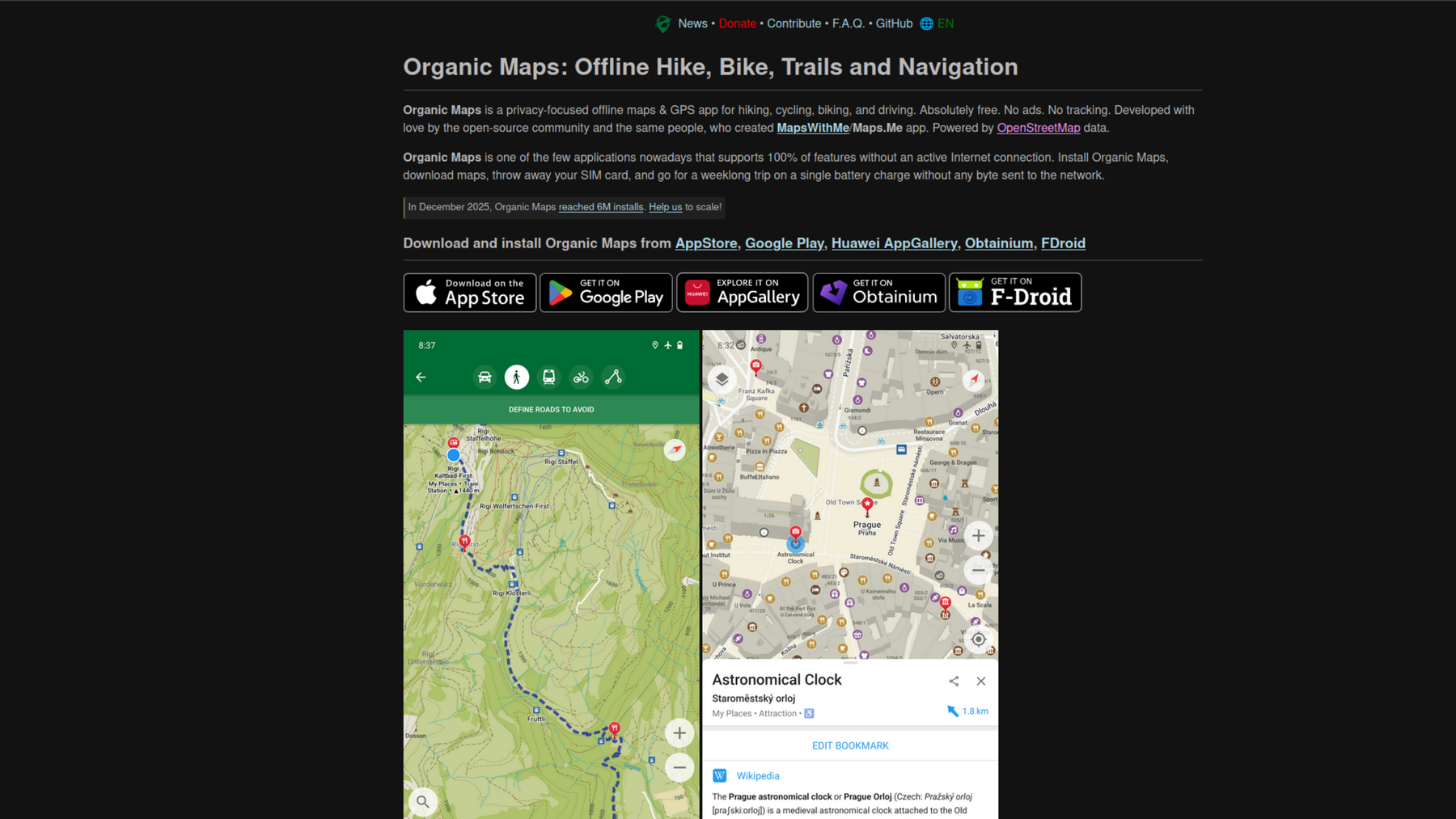

Organic Maps is a great Google alternative built with privacy in mind. Screenshot: Organic Maps.
2. Organic Maps
Organic Maps is a great choice open source maps tool primarily because they offer support for all features of their iOS and Android apps completely offline, and for free. This means if you have an old phone laying around, you can install the app, download the maps you need and presto! You now have an indepth digital map in the palm of your hand without needing to worry about losing or damaging your primary mobile device when exploring the outdoors.
Organic Maps tugs our heartstrings by their commitment to privacy. The app can run entirely without a network connection and comes with no ads, tracking, data collection, and best of all no registration. You just need to download it and you’re ready to go.
Organic Maps is powered by OpenStreetMap data and makes a good Google Maps alternative to use for navigation while hiking, cycling, and driving. It’s available on Google Play, F-droid, Obtainium, or AppGallery for Android, and on the App Store for iOS.
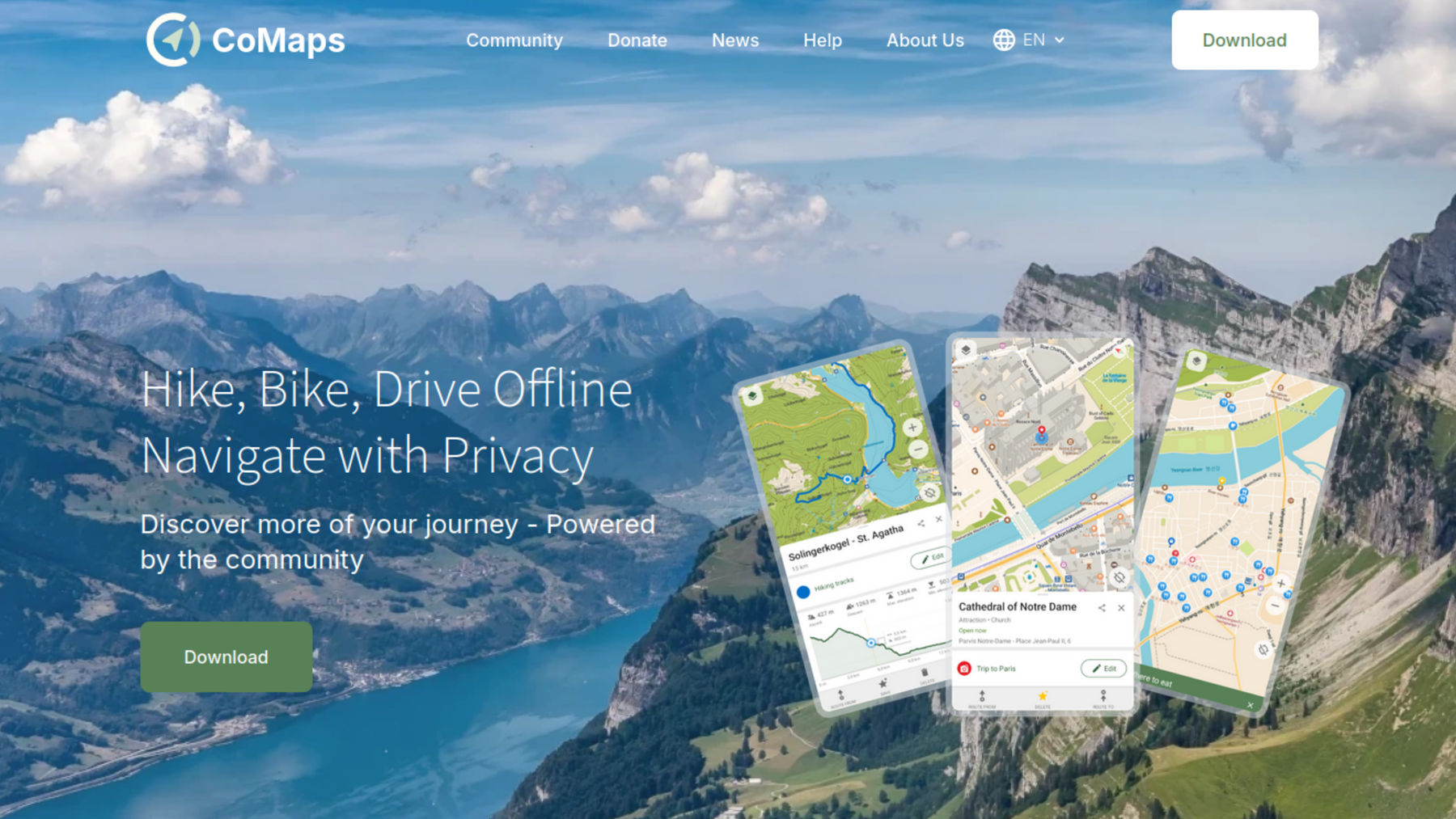

CoMaps offers an alternative to Google Maps for those who prioritise privacy. Screenshot: CoMaps.
3. CoMaps
CoMaps, a fork of Organic Maps, came out in 2025 after concerns of Organic Maps governance were raised. CoMaps makes an excellent Google Maps alternative that is also free to use, open source, powered by OpenStreetMap data and available for iOS and Android.
CoMaps is a community-driven, transparent, and not-for-profit project which offers a navigation app intended for drivers, hikers, and cyclists. It allows you to navigate your way in an easy to use app, that unlike Google Maps, does not track you or collect your data.
CoMaps can be used offline with or without network connection, comes with no annoying ads, and it doesn’t drain your mobile’s battery (unlike Google Maps). It’s available on Google Play, F-droid, IzzyOnDroid, Obtainium or APK download for Android, and on the App store for iOS.
Take back your privacy with more Google alternatives
When you use Google Maps or other Google services, your privacy is compromised due to the excessive tracking and data collection. But we have good news.
You now have options - you do not need to use Big Tech products that exploit your data. This has given rise to the growing movement to DeGoogle and even leave Microsoft, and replace all Big Tech services with privacy-focused alternatives. For example, switching from Gmail to Tuta Mail, the better alternative. Because of this growing trend, it is now possible to replace almost all Google apps and proactively take back your privacy.
Regardless of which of these open source mapping apps you choose to replacing Google Maps, it won’t steer you wrong. By choosing open source alternatives to Big Tech you can take one more step in your privacy journey.
Wherever you might be headed, we’ve got you covered.

